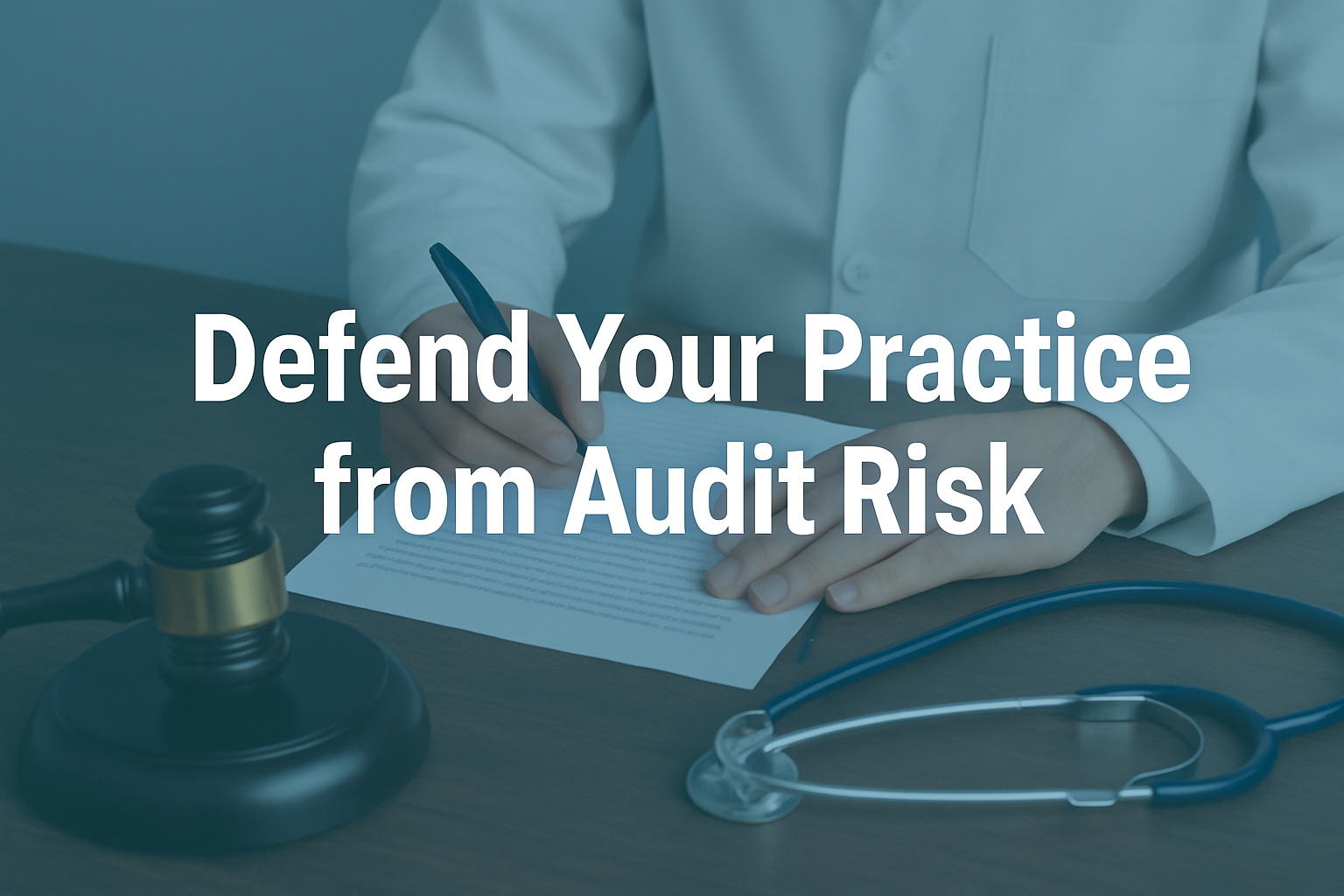
Medicare’s auditors are zeroing in on wound care providers. OIG’s 2024 Work Plan singles out skin‑substitute and debridement claims, Unified Program Integrity Contractors (”UPICs”) have launched multi‑state probe cycles, and a single record‑request letter now routinely balloons into six‑figure overpayment demands or fraud referrals. With payment suspensions issued at “credible‑allegation” speed - and recent criminal pleas over wound‑allograft billing showing prosecutors’ appetite for combatting fraud in the would care sector - providers who face audits without a dedicated wound care attorney risk both cash flow collapse and long‑term exclusion.
When a wound care audit puts your practice on the line, having a dedicated wound care audit attorney can make all the difference. But when faced with an audit, when should providers get counsel involved? From handling complex auditor communications to crafting strong appeals, legal experts can reduce your practice’s liability and resolve audit issues efficiently. With Health Law Alliance’s experienced providers on your side, you don’t have to face wound care audits alone.
Knowing When to Call a Wound Care Audit Attorney
An attorney should be engaged the moment a notice cites potential fraud, requests 30 or more claims, or comes from a UPIC, OIG, or Qlarant: the same contractors that uncovered a 7‑percent improper‑payment rate in CMS’s latest CERT sample. By engaging counsel early, practices can preserve their appeal rights and prevent the possibility of inadvertent admissions during the first ten days of a record request.
How Legal Counsel Prepares Your Defense
Before regulators conduct an audit, experienced lawyers will run a shadow audit to identify risks in your practice. These audits involve a comprehensive overview of each aspect of your business: sampling charts, verifying wound dimensions, checking serial number logs for high‑cost grafts, and tying every CPT code - from 97597/97598 to 11042‑11047 - to clinical notes and LCD coverage criteria. Where gaps are identified, attorneys can help to close them with addenda, peer‑reviewed literature, and timelines that show medical necessity long before an official audit response is filed. With the right attorney, you can expect a comprehensive review of your practice’s risks and a response uniquely tailored to resolve any “red flags” an auditor might identify.
Managing Communication With Auditors and Investigators
Wound care attorneys step in to manage all communications with auditors, becoming the sole point of contact for an auditor during an investigation. For every document request, expect precise cover letters and production logs that satisfy auditors without volunteering extra data they might twist. UPIC scripts are notorious for asking leading questions. Attorneys know to evaluate each inquiry closely, reframing inquiries as needed to ensure auditors are following all regulatory requirements throughout the audit process.
Challenging Adverse Findings
If auditors allege lack of medical necessity or hint at fraud, counsel are able to draft point‑by‑point rebuttals citing relevant Medicare and wound healing guidelines. Many “errors” collapse once full wound dimensions, bacterial‑load imaging, or operative reports are produced.
Navigating Appeals From Redetermination to ALJ
Should denials persist, an attorney can help you continue to fight against unjust results. An attorney works with you to manage the five‑level Medicare appeal track: meeting 120‑day filing windows, uploading multi‑gigabyte exhibits to OMHA, and presenting expert testimony on graft‑take rates or negative‑pressure‑therapy efficacy. ALJ statistics data show represented appellants fare much better than unrepresented ones - for example, the Center for Medicare Advocacy reported a 72% fully favorable rate for its represented cases versus 28% for unrepresented beneficiaries; in the same period, providers (typically represented) had a 61% fully favorable rate.
Protect Your Practice With Health Law Alliance
Audits aimed at wound‑care services are no longer routine: they carry the risk of fraud allegations, payment suspensions, and potential exclusion from federal health care programs. Health Law Alliance deploys former OIG lawyers, certified coders, and wound care clinicians to audit‑proof your records, manage every interaction, and fight denials through hearing. Contact us today for a free case evaluation before a document request spirals into a business‑ending liability.
MORE ARTICLES BY CATEGORY
The Performant Audit Playbook: How to Protect Your Practice from New York’s New Medicaid RAC
For years, New York healthcare providers have navigated the complex oversight of the Office of the Medicaid Inspector General (OMIG), primarily through its Medicaid Recovery Audit Contractor (RAC) vendors. In April 2025 the landscape shifted as the state engaged Performant Healthcare Solutions (“Performant”) as its exclusive Medicaid Recovery Audit Contractor (“RAC”).
Read More >>Darmerica - FDA Issues Warning Letter Targeting GLP-1 API Supply Chain Manufacturer
FDA issued a Warning Letter to Darmerica citing cGMP violations and improper distribution of GLP-1 and peptide APIs. Learn what this means for 503A compounding pharmacies and supply chain compliance.
Read More >>Italian Gold Broker Criminally Charged in $86 Million Customs Duty and Tariff Evasion Scheme Released on Bail
Italian national Claudio Fogale was released from federal jail after his attorney, Anthony J. Mahajan, successfully argued that the evidence was weak and legal requirements were ambiguous.
Read More >>PBM Enforcement Trends Independent Pharmacies Must Prepare for in 2026
Independent pharmacies are heading into 2026 under tighter PBM oversight, more aggressive audit practices, and evolving reimbursement models driven by regulatory pressure and DIR fee reform. To survive in this environment, pharmacies must strengthen compliance, documentation, and inventory controls while partnering with experienced PBM counsel to manage audits, protect reimbursements, and avoid network termination.
Read More >>




